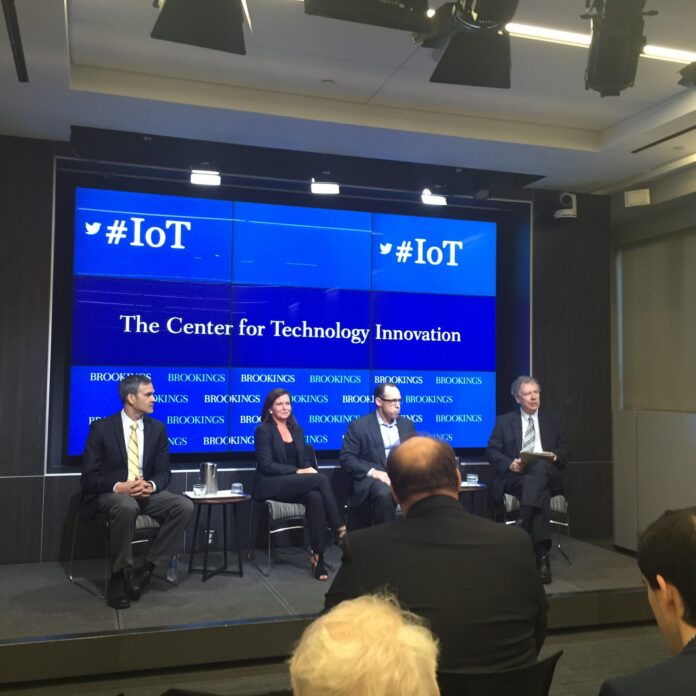WASHINGTON – Academic think tank the Brookings Institute hosted a panel on Oct. 21 to discuss the emerging economic force that is the “Internet of Things” and how it is transforming the global economy.
Panelists included Glenn Lurie, CEO at AT&T Mobility; former Federal Communications Commissioner and current President and CEO of CTIA Meredith Atwell Baker; and John Villasenor, senior nonresident fellow at Brookings’ Center for Technology Innovation and professor of electrical engineering and public policy at UCLA.
Spectrum and infrastructure
The panel agreed that the number one issue the IoT economy and the wireless industry will need to address going forward is infrastructure and spectrum.
Lurie noted that IoT is critical to wireless companies: “We only got into this space eight plus years ago and we saw that everything in our lives was going to be connected.” AT&T sees IoT as the natural evolution of the wireless industry. This evolution, however, will require more infrastructure, more spectrum and a more efficient use of both.
On spectrum assets, Baker said, “Spectrum is going to be a very important input into the Internet of Things. As we talk about the Internet of Things and everything being connected, that’s going to drive a lot more traffic; by our estimates it’s six to seven times more traffic.” She said that to keep up with demand the wireless companies CTIA represents are investing heavily in infrastructure with $30 billion spent last year.
The panelists agreed that while IoT will drive up data traffic, it likely won’t be a heavy user of spectrum, but it will have to share with a network increasingly dominated by high bandwidth video prompting a need for smarter more agile networks.
Connecting everything
Baker was quick to emphasize that the main benefit IoT will be “making all our lives better.” Panelists hit on the impact IoT could have in areas from industrial manufacturing and agriculture to smart homes and connected cars.
On connected cars, Lurie said, “The car is going to be that next great device in your life, and I would argue the home is going to be right there with it. This is the Internet of everything, and industrial is probably the most exciting and most on fire because there isn’t a company on the planet that isn’t saying ‘how do I get better?’”
Beyond industrial, Lurie pointed to agriculture as a field that often isn’t thought of in the same context as wireless, but is benefiting hugely from IoT solutions.
Though the road ahead for IoT can be challenging with concerns raised around security and privacy, Baker said, “I think [AT&T] and the wireless industry is up to solving this challenge. I feel certain the networks are going to handle this and we’re going to have a safe and secure environment.”

